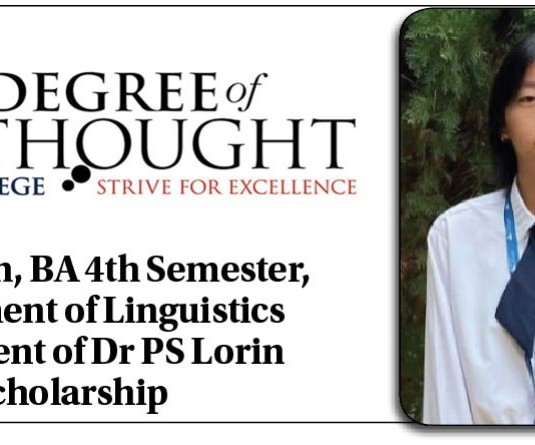
Minimalism is becoming a popular lifestyle choice among many people worldwide today. It reminds us that happiness does not always come from owning a lot of things, but from focusing on what truly matters. It is more than just a design or aesthetic trend; it is actually a way of living with purpose and intention. Minimalism encourages us to clear away distractions, keep only what we truly need, and devote more attention to experiences, relationships, and personal growth. Instead of running after consumerism, minimalism teaches us to be content with what we already have and find peace in simplicity.
In India, this idea is slowly catching on. Many people have started questioning the old belief that success means owning a lot of things. In cities like Delhi, Mumbai, and Bangalore, more people now prefer small but well-organised homes. They are realising that clutter can make life stressful, while a clean and simple space feels calm and refreshing. Minimalist homes are not just attractive; they are also practical and environmentally friendly. With growing awareness about sustainability, people are choosing eco-friendly materials, saving energy, and cutting down on waste. Living this way also helps save money and lets people focus on experiences that matter more than material things.
Minimalism also changes how people use their time. Instead of endlessly scrolling through social media or buying things they do not need, many people now prefer spending time on hobbies, learning something new, or being with family. This shift helps reduce stress and makes life feel more meaningful. Minimalists try to buy fewer things, but when they do, they choose items that last long and truly serve a purpose, often handmade or locally made. It is not about owning nothing at all, but about owning wisely and with thought.
Around the world, minimalism takes different forms. In Sweden, the idea of Lagom means “just the right amount,” which teaches balance in life. In Japan, the principle of Ma, which means the respect for space, permeates all aspects of life, from art and architecture to daily living. In African communities, minimalism often appears through sharing and valuing relationships more than things, while in Latin America, simplicity is linked with family and culture. Even in North America, where consumerism is strong, many people are now turning to simpler and more mindful living.
Of course, minimalism is not always easy to practice. In India, emotional attachments, traditions, and social expectations can make it hard to let go of possessions. Sustainable or high-quality products can also be expensive. And in a world full of advertisements and social media trends, living simply can sometimes feel unusual or even misunderstood. But minimalism does not mean giving up everything; it just means keeping what truly adds value to our lives and letting go of what does not.
Minimalism also inspires creativity. When people have fewer distractions and possessions, they tend to use their imagination more freely. Artists, writers, and designers often find that a simple environment sparks new ideas and helps them think clearly. Even in daily life, minimalism encourages people to find creative ways to reuse and repurpose things instead of constantly buying new ones. This not only saves resources but also builds a sense of pride in making the most out of what we already have.
As more people embrace this lifestyle, minimalism is slowly becoming a movement towards mindful living. It reminds society to slow down, live consciously, and focus on genuine happiness instead of external appearances. Whether it is through simplifying our homes, reducing digital clutter, or nurturing deeper human connections, minimalism offers a path to balance in a fast-paced world. In choosing simplicity, we rediscover what truly matters—the beauty of enough.
Education, too, can reflect minimalist values. Many schools and universities are now promoting simpler, more mindful approaches to learning—focusing on understanding rather than memorising, and on depth rather than quantity. Students are encouraged to declutter not only their study spaces but also their minds, prioritising meaningful goals over constant competition. This mindset helps young people develop clarity, balance, and a stronger sense of purpose in both academics and life. When applied in education, minimalism becomes more than a personal lifestyle—it becomes a philosophy for a better, more thoughtful future.
One of the best things about minimalism is how it helps our mental health. A tidy and peaceful space reduces anxiety and helps us focus better. It also reminds us to be grateful for what we have instead of constantly wanting more. People often realise they have more time and energy for the things they truly enjoy. On a larger level, minimalism also benefits the environment. When we consume less, we waste less and help protect natural resources. Even small steps, like reusing items or buying durable products, make a difference over time.
In the end, minimalism is not really about owning less; it is about living more meaningfully. When we combine our traditional values with modern awareness, we can create a life that feels calmer, more focused, and deeply fulfilling.
Degree of Thought is a weekly community column initiated by Tetso College in partnership with The Morung Express. Degree of Thought will delve into the social, cultural, political and educational issues around us. The views expressed here do not reflect the opinion of the institution. Tetso College is a NAAC Accredited UGC recognised Commerce and Arts College. The editorial team includes Chubamenla, Asst. Professor Dept. of English and Rinsit Sareo, Asst. Manager, IT, Media & Communications. For feedback or comments please email: dot@tetsocollege.org






